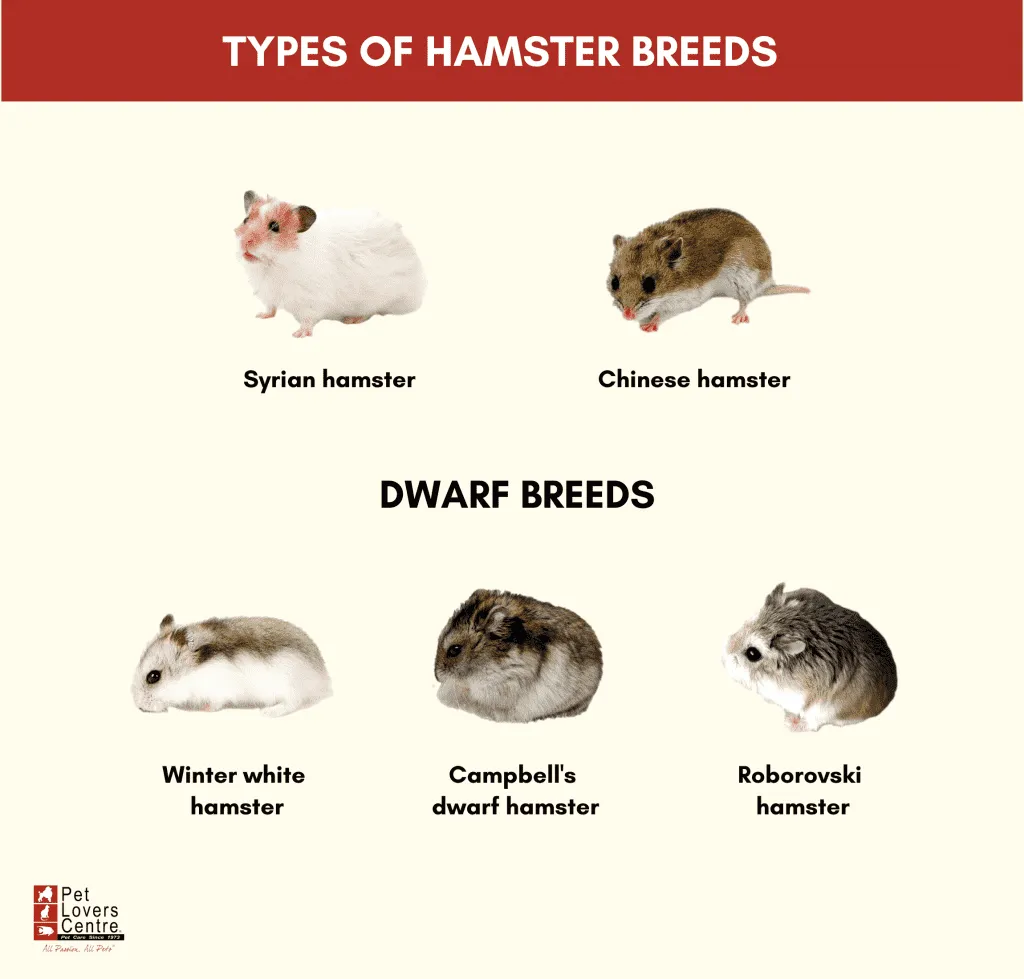Understanding Hamster Personalities
Hamsters are delightful creatures that make popular pets around the world. Beyond their adorable appearance, they have distinct personalities that can vary significantly between breeds and individual hamsters. This article delves into the different temperaments, behaviors, and characteristics associated with various hamster breeds, providing insights for potential and current hamster owners. Whether you’re considering adopting a hamster or looking to enhance your relationship with your furry friend, understanding their personalities is crucial.
Common Hamster Personalities Across Breeds
Each breed of hamster exhibits unique personality traits that can influence their care, handling, and socialization needs. For instance, the **Syrian hamster** is known for being solitary and territorial, while **dwarf hamsters** tend to be more social and may thrive in pairs or groups. Knowing these behavioral tendencies can help you choose the right breed for your lifestyle and preferences. For those who enjoy interactive pets, a more social breed might offer endless fun, while individuals seeking a low-maintenance companion might appreciate the independence of a Syrian hamster.
Social vs. Solitary: The Syrian Hamster
The Syrian hamster is one of the most popular pet hamster breeds. They are generally characterized by their solitary nature, often preferring to live alone. This personality trait means they require less interaction from their owners in terms of establishing social hierarchies, making them easier to care for if you can’t spend significant time interacting daily. However, this doesn’t mean they don’t enjoy human companionship! These hamsters can develop bonds with their owners through regular handling and gentle play. It’s important to create a safe environment for them, as they can become somewhat skittish if they feel threatened.
The Playful Nature of Dwarf Hamsters
Dwarf hamsters, including breeds like the Roborovski and Campbell’s dwarf hamster, tend to be more social and playful compared to their Syrian counterparts. They often enjoy the company of their fellow dwarf hamsters, demonstrating a wide range of playful behaviors. When raised in pairs or groups, dwarf hamsters can engage in entertaining social interactions and build strong social bonds. However, not all dwarf hamsters will get along, so it is essential to monitor their interactions and separate them if aggression occurs. Successful socialization is the key to keeping dwarf hamsters happy and healthy.

Understanding Specific Behavior Traits
Besides the general personality traits of hamsters, individual behaviors often define each creature’s personality. Some hamsters may be more adventurous, frequently exploring their habitats, while others are content to stay in their nests. Recognizing these unique behaviors can enhance your interactions and improve their environment, leading to a happier pet.
The Curious Explorer
Curious hamsters exhibit traits that marvel owners. These hamsters love to explore new elements in their cages, whether it’s tunnels, toys, or even their owner’s hand. To cater to their inquisitive nature, ensure their habitat is well-equipped with branches, wheels, and different textures to keep them engaged. Setting up small challenges, such as hiding treats in various places, can provide mental stimulation, encouraging their natural exploration instincts.
The Shy and Reserved Hamster
On the contrary, some hamsters may be shy or reserved, preferring to stay in their cozy spaces. These hamsters require a gentle approach and a patient hand. Building trust takes time, so allowing your hamster to come to you on their terms is key. Provide a safe space where they can feel secure, maybe utilizing a hideout in their cage, and approach interactions slowly. Once they adjust to handling, many shy hamsters will display affectionate behaviors as they learn to trust their owners.
Tips for Building Positive Relationships with Your Hamster
Developing a solid relationship with your hamster can take time and patience, but there are several approaches that can help. The right techniques not only foster trust but can also mold their behavior positively.
Creating a Comfortable Environment
Fostering the right environment is essential for your hamster’s comfort and mental health. You can enhance their space with enrichment items suited to their personality type. For example, a curious hamster may benefit from various climbing structures, while a shy hamster might prefer more bedding or burrowing materials to feel secure. Additionally, consider the size of their cage to accommodate activity levels; a larger environment typically allows them to roam and explore more freely.
Regular Interaction and Socialization
Building a bond with your hamster through consistent handling and interaction is important. Start by spending time near their habitat to familiarize them with your presence. Gradually introduce your hand and allow them to approach you voluntarily. When handling them, support their bodies adequately, as it will help them feel secure. Incorporate play into your routine with supervised free-range time on a clean surface; letting them explore under your supervision can fortify your bond. Regular interaction will ultimately teach them to trust you and show affection in return.

Recognizing Signs of Stress or Unhappiness
Monitoring your hamster’s behavior for stress indicators is crucial in ensuring their well-being. Knowledge of their personality and habitual routines will aid in recognizing changes that denote distress or discomfort.
Common Signs of a Stressed Hamster
Some noticeable signs of stress in hamsters include excessive grooming, changes in drinking or eating habits, or aggression toward cage mates or owners. If you observe your hamster biting the bars of their cage or engaging in repetitive behaviors, it may indicate boredom or confinement stress. Offer areas for exploration and enrichment tools to counter a monotone environment, thereby providing the stimulation they need to remain engaged.
Seeking Medical Attention
In some cases, behavioral changes may signify health issues. If you notice sudden shifts in personality, such as decreased energy or avoiding interactions, it’s advisable to consult a veterinarian familiar with small mammals. Quick recognition of health changes can lead to effective treatment and can save your pet from unnecessary suffering.
Key Takeaways
- Individual hamsters can have vast personality differences based on breed and personal temperament.
- Understanding your hamster’s social needs is essential for providing a satisfying environment.
- Establishing trust through consistent, gentle handling encourages positive bonding.
- Regularly monitor your hamster’s behavior to swiftly detect stress or health issues.
- Creating a comfortable they can explore or retreat to can significantly improve their mental health.
FAQ
1. What are the main personality traits of a Syrian hamster?
Syrian hamsters are typically solitary and territorial. They prefer to live alone and can develop a strong bond with their owner through regular handling. Most often, owners find Syrian hamsters to be friendly and cuddly, making them easy and rewarding pets when they are properly socialized.
2. Can dwarf hamsters be kept together?
Yes, some dwarf hamster species can often be kept together, especially if they are introduced at a young age. However, it is crucial to monitor their interactions, as aggression can occur, necessitating individual housing if conflicts arise.
3. How can I build trust with my hamster?
Building trust with your hamster takes time. Start by spending time near their cage, letting them approach you, and then gradually introduce handling. Always be gentle and provide positive reinforcement through treats to create a positive association with your presence.
4. What enrichment items do hamsters need?
Hamsters thrive on enrichment items such as tunnels, wheels, chew toys, and climbing structures. These items promote activity and mental stimulation, which are essential for a happy and healthy hamster.
5. When should I consult a vet about my hamster?
Consult a veterinarian if you notice significant changes in behavior, eating habits, or energy levels. Early detection of health issues can ensure effective treatment and a better prognosis for your pet.
By recognizing the diverse personalities of hamsters and providing an environment that caters to their unique needs, owners can build meaningful, lasting relationships with these wonderful creatures. Both new and experienced hamster owners will benefit from understanding the core characteristics that make their fuzzy companions so special.
